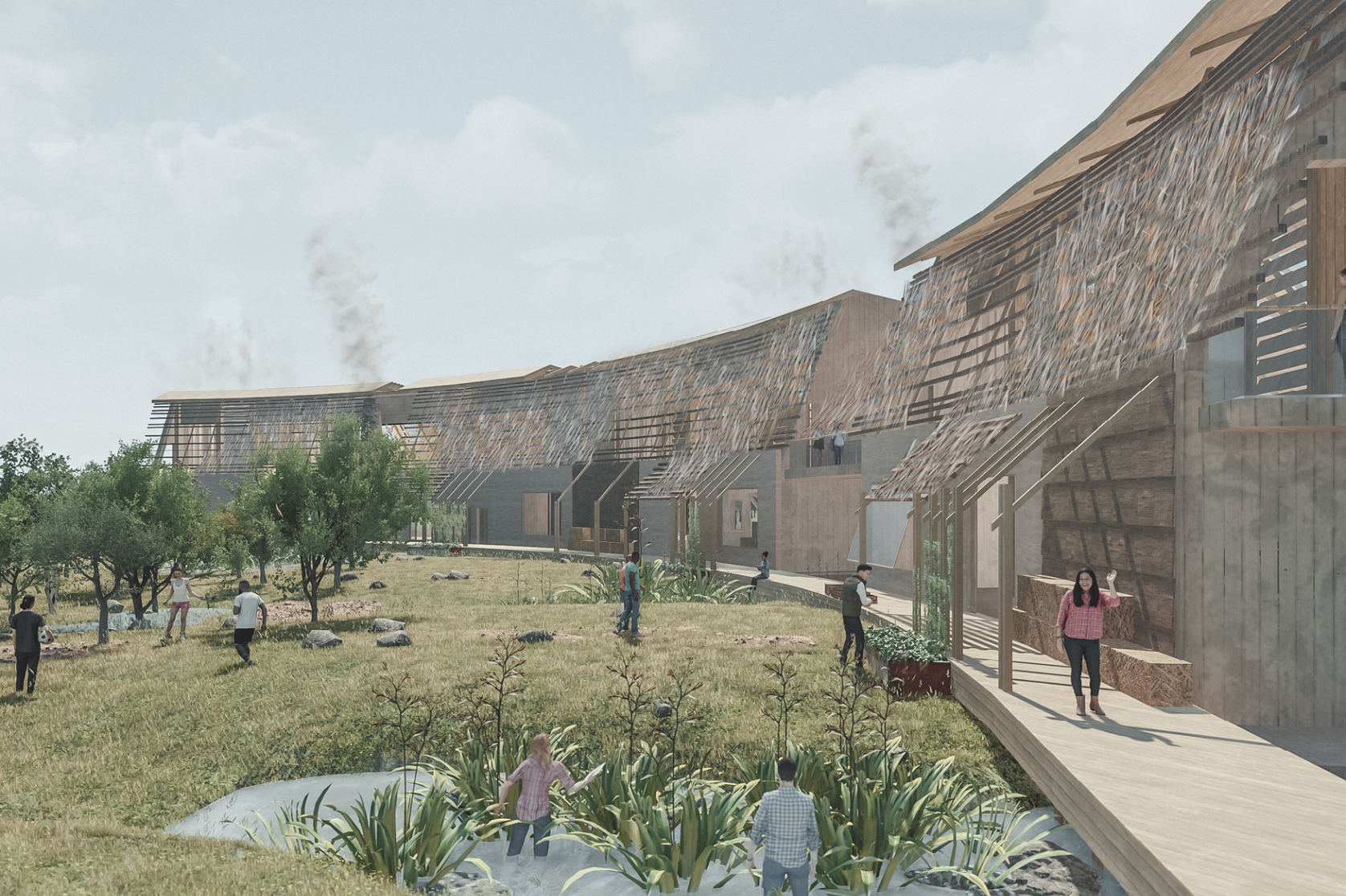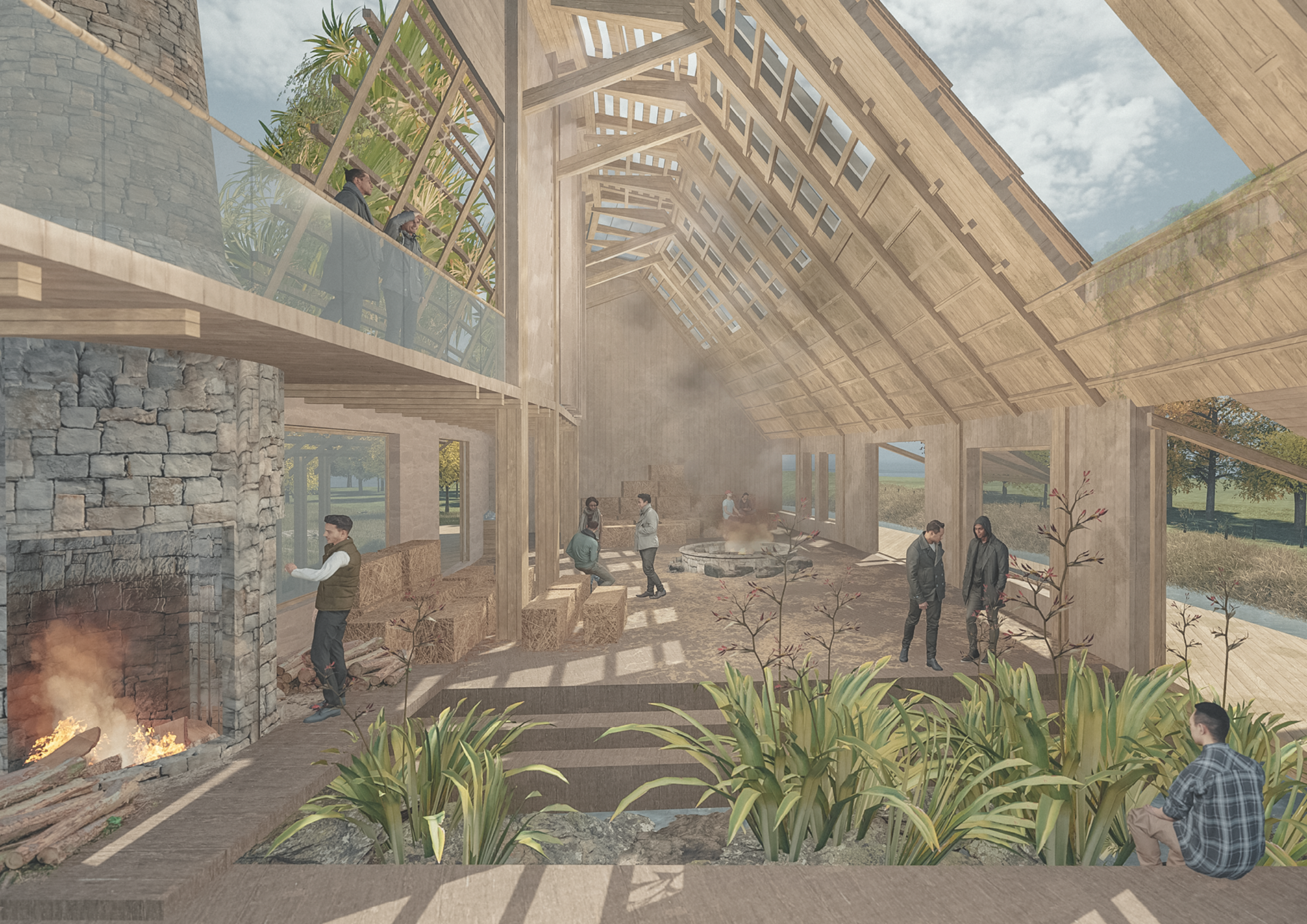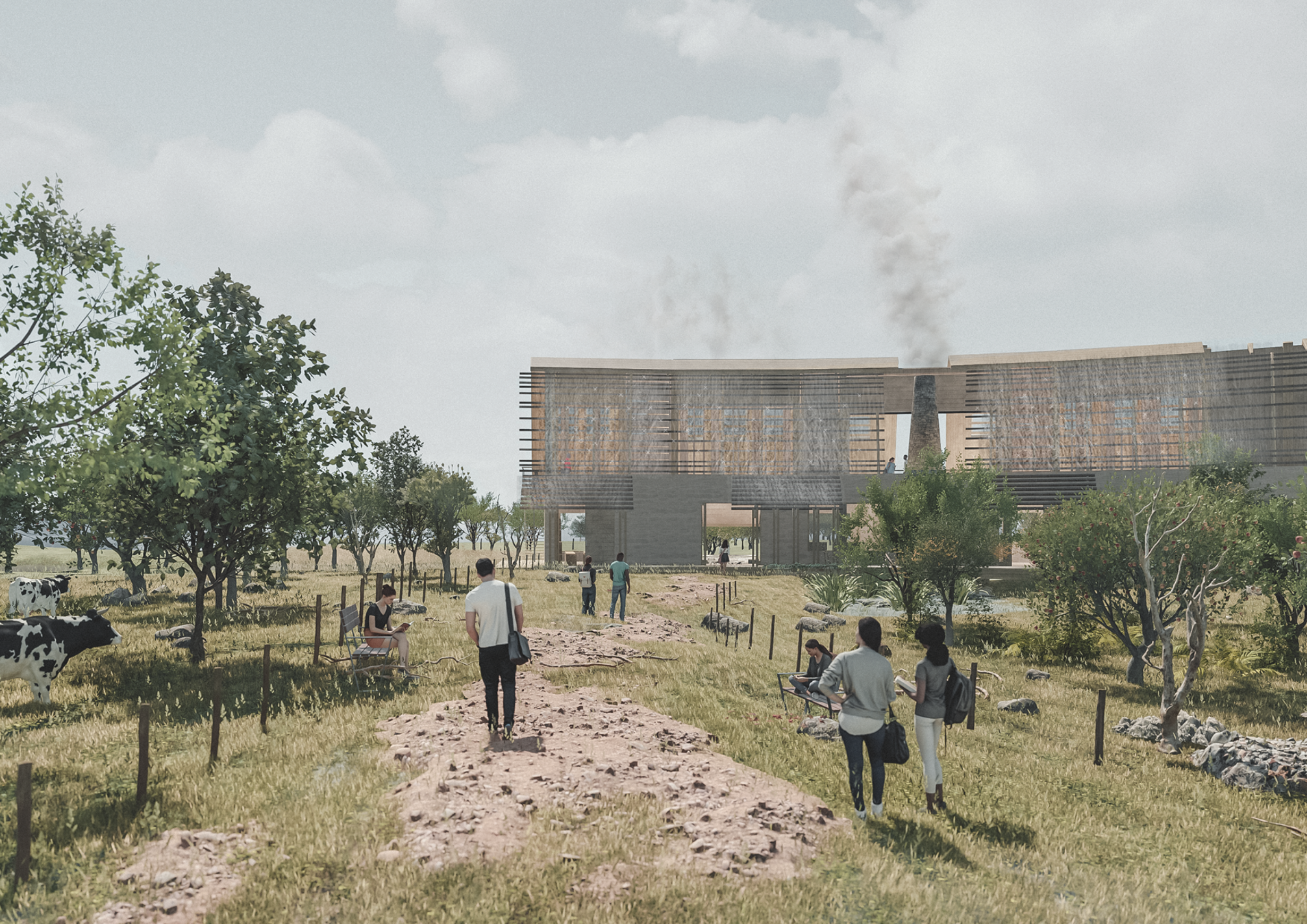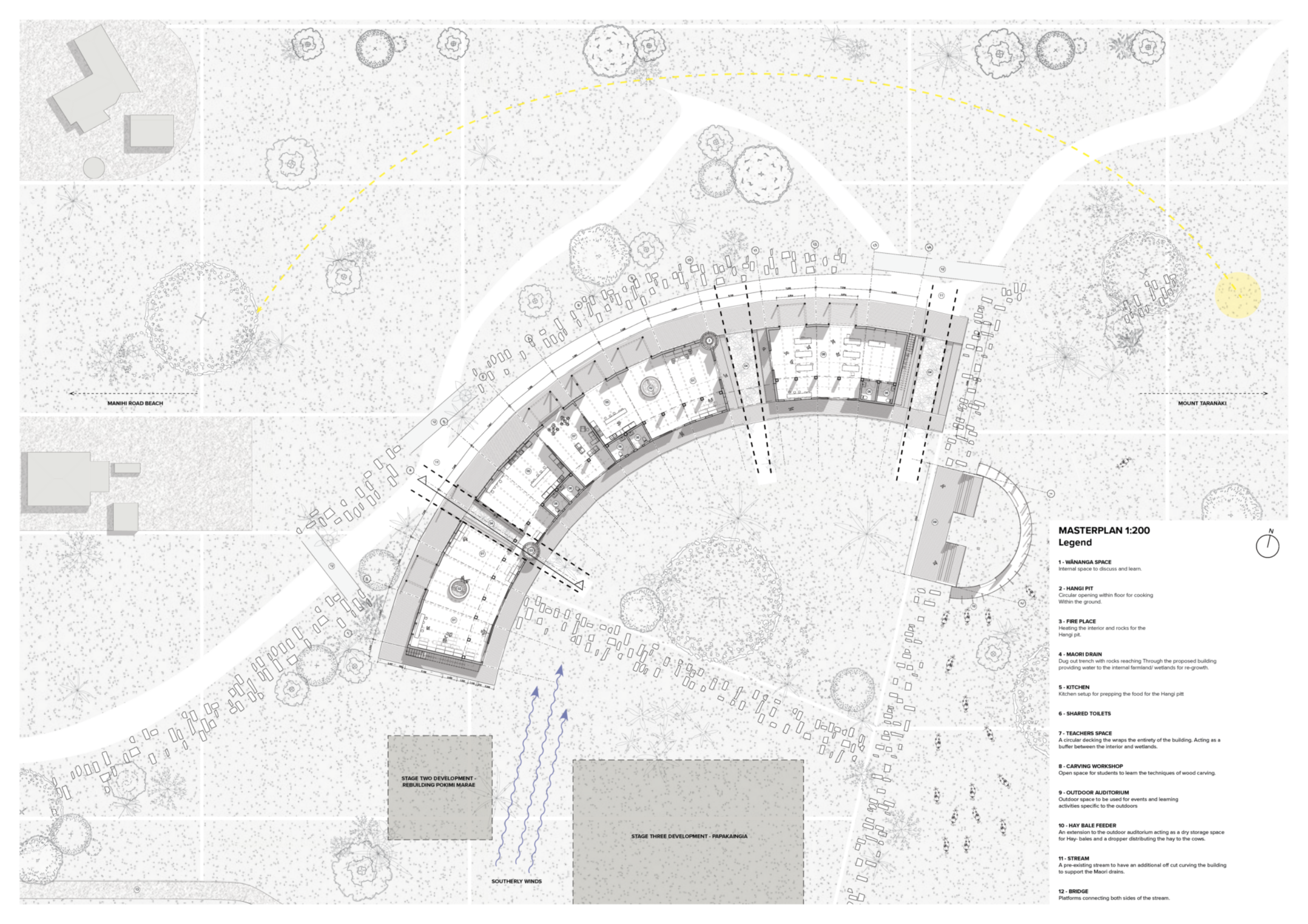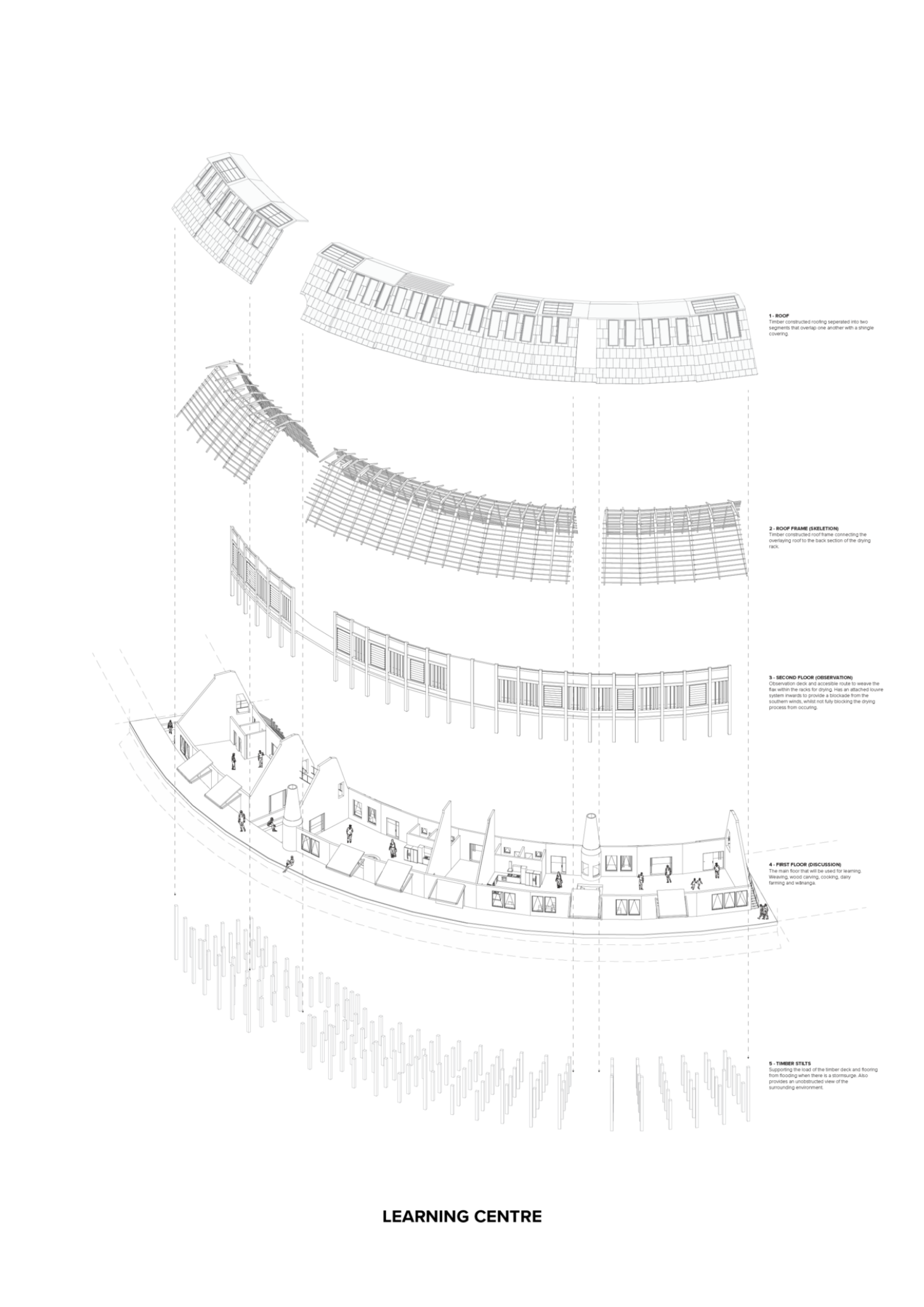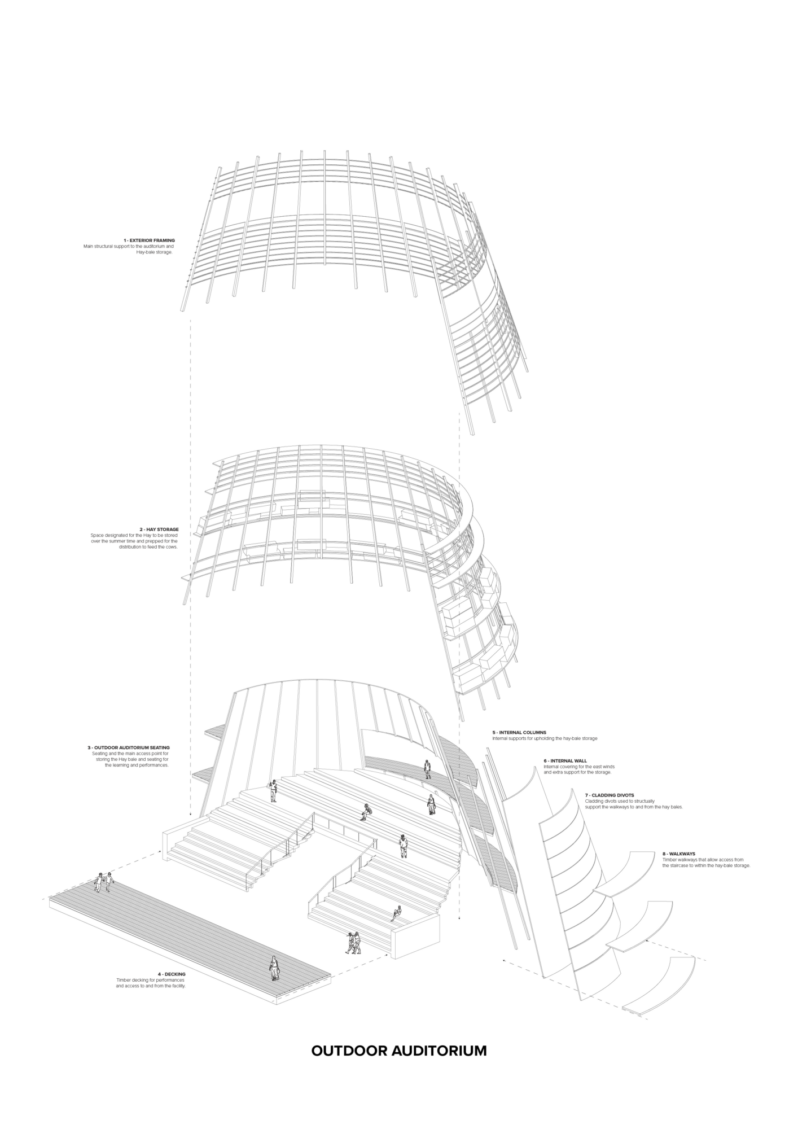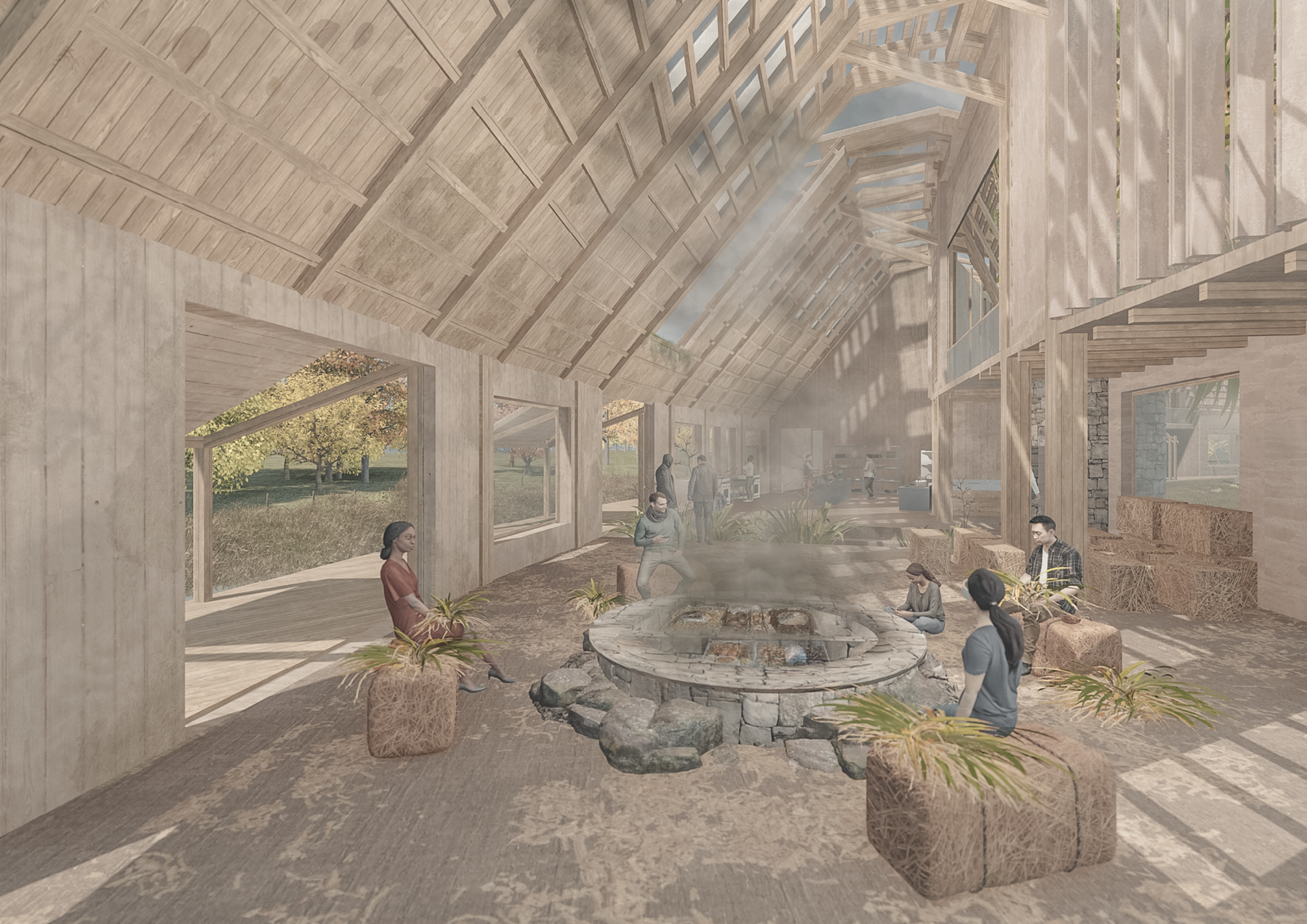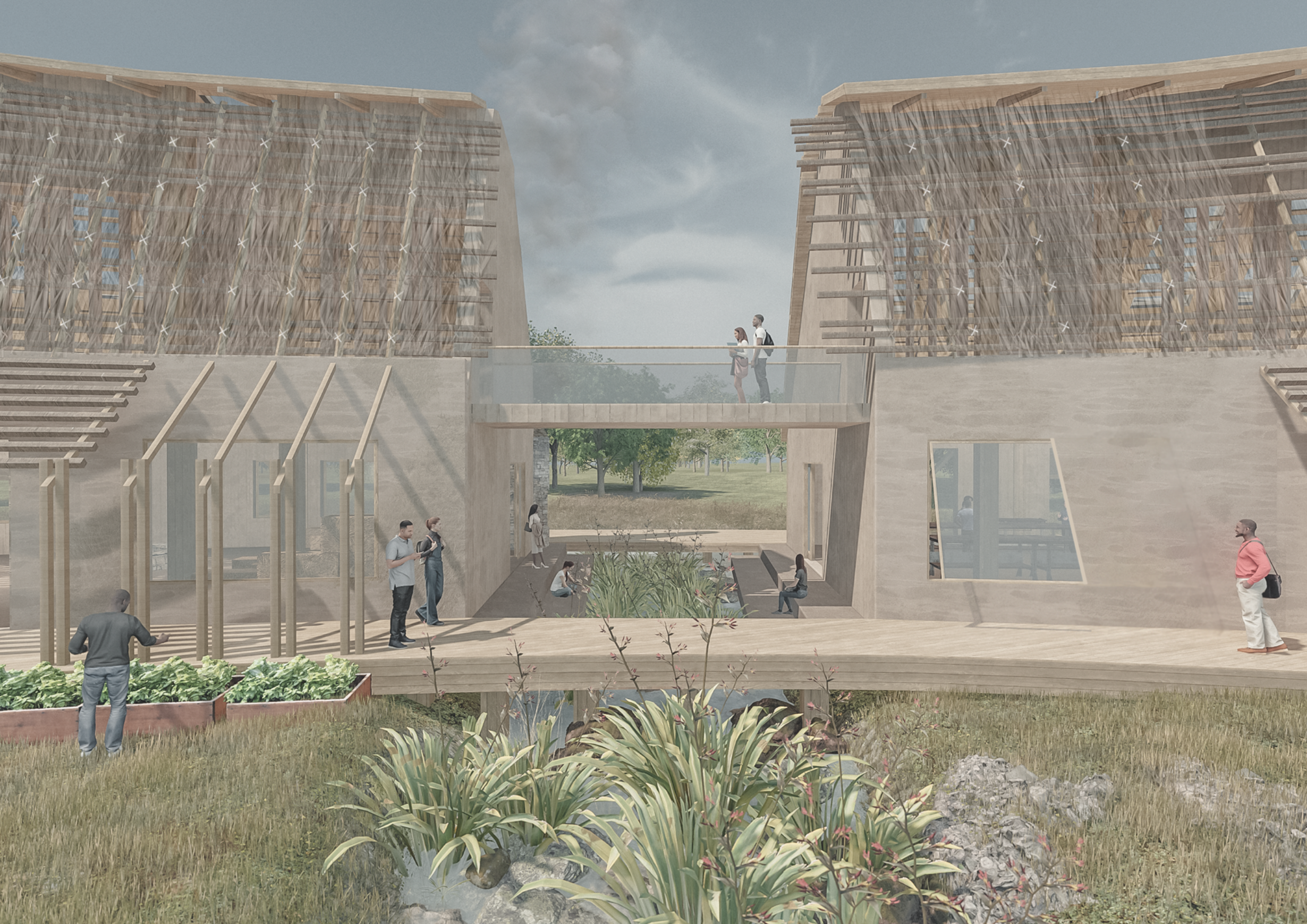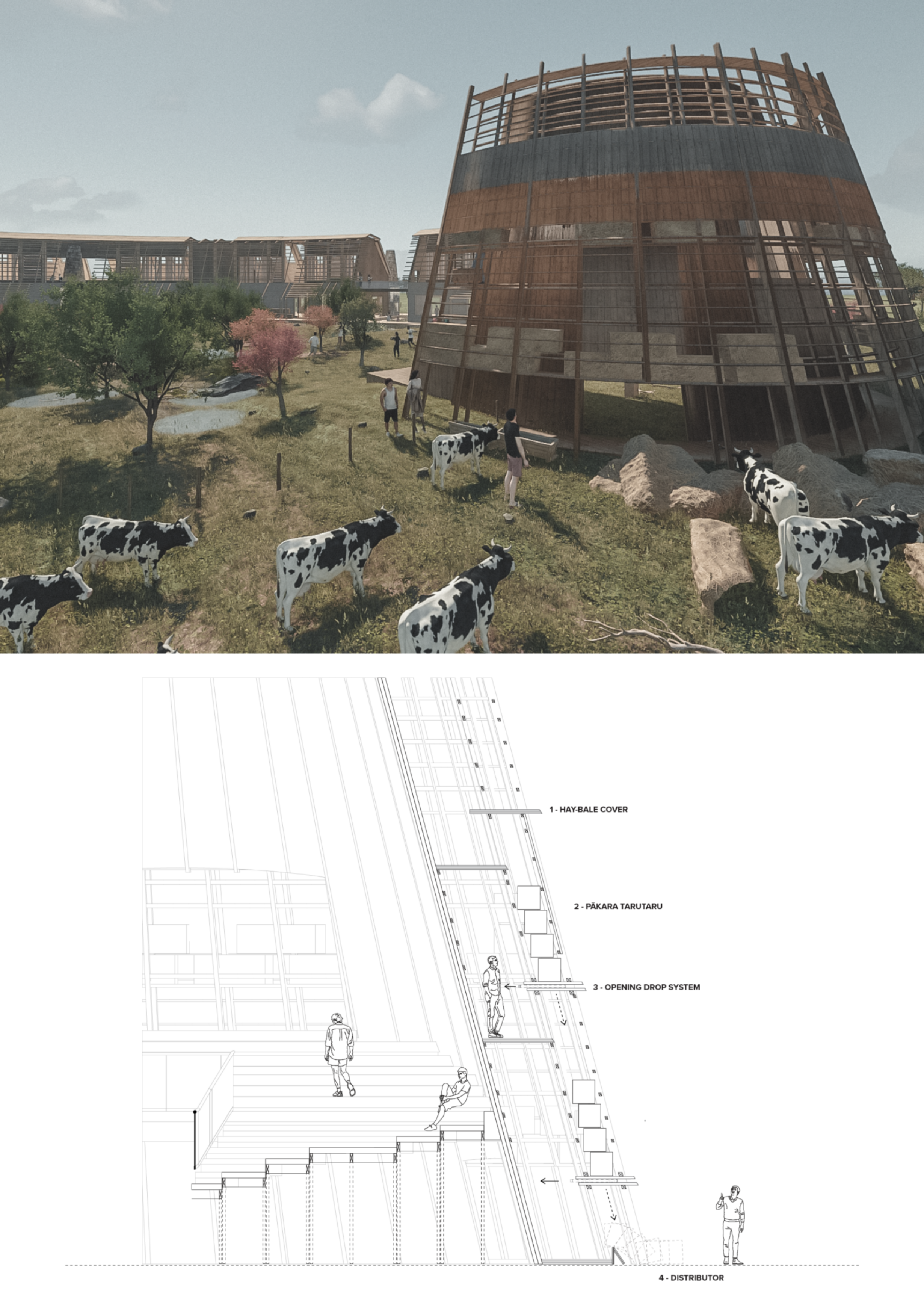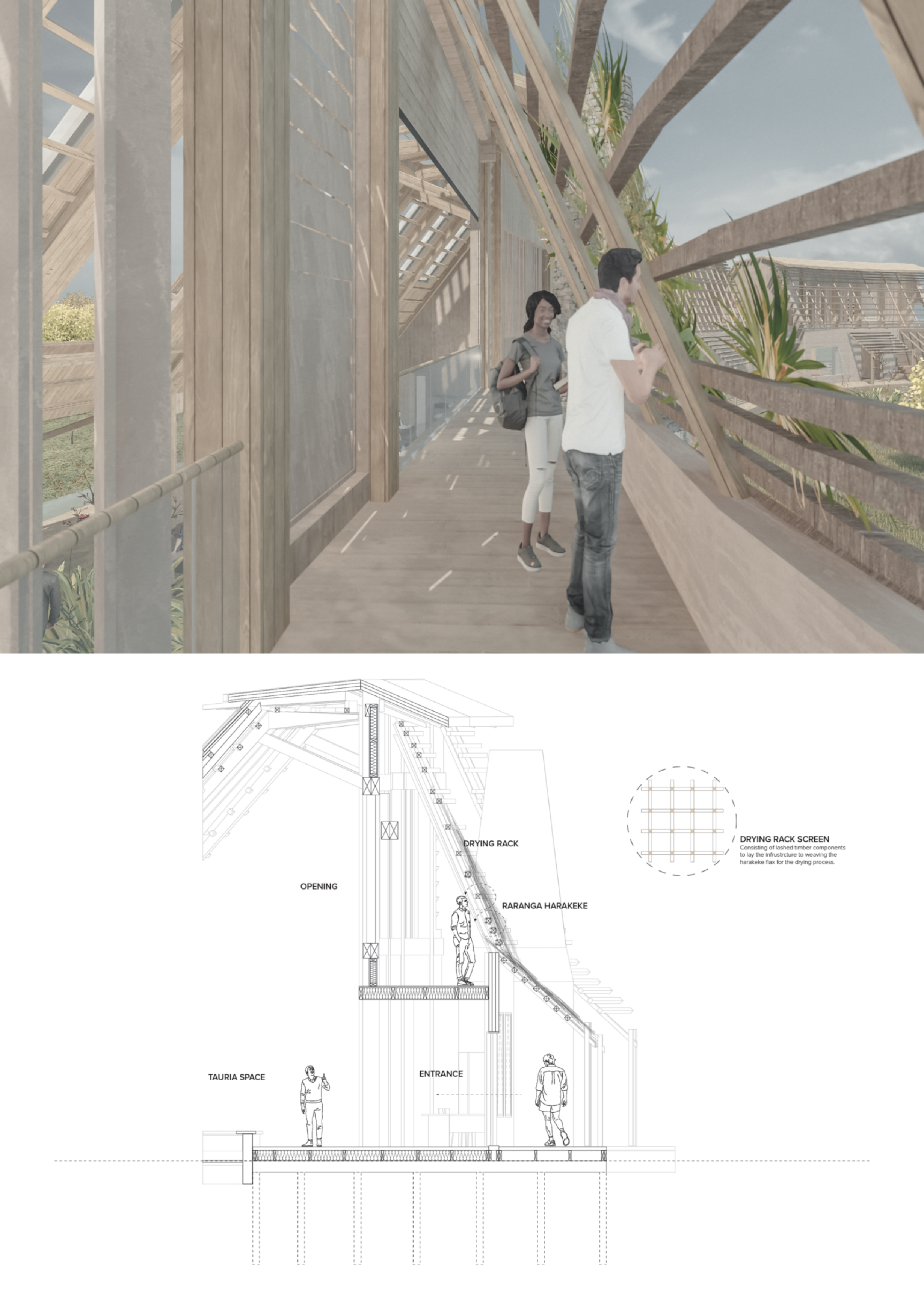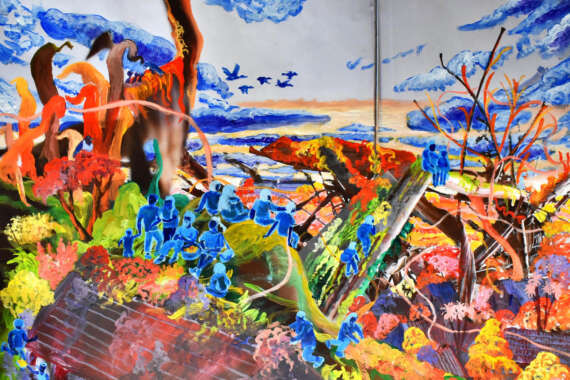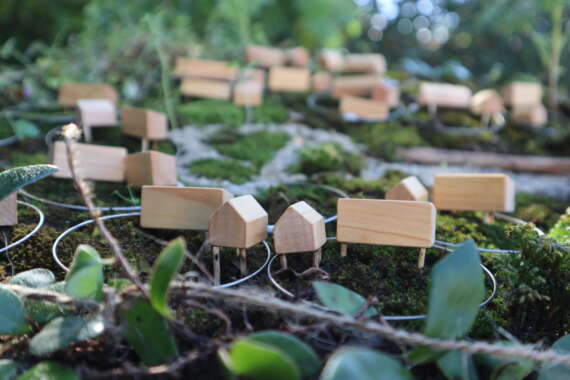The thesis, "Architectural Fieldwork and Practical Skill Development: Exploring Knowledge Acquisition in Rahotu, Taranaki", investigates the transformative role of architectural fieldwork in the development of practical skills and knowledge procurement within rural farming communities. Focusing on the remote town of Rahotu in the Taranaki region, the study examines how an educational facility can act as a transitional medium between high school and employment, addressing the specific needs of rural learners through innovative, hands-on approaches.
This research is grounded in pedagogical theories such as Legitimate Peripheral Participation (LPP) and emphasizes the value of situated learning through community engagement. The facility is designed to offer a variety of programs that integrate flexible learning environments and informal educational spaces, encouraging students to actively participate in real-world farming, crop cultivation, dairy, and timber trade practices.
These programs aim to bridge the gap between theoretical knowledge and practical application, providing students with a greater connection to both their learning environment and the surrounding rural context. In the farming program, students are immersed in fieldwork activities that develop essential agricultural skills such as farm management, crop rotation, and livestock care. These activities are underpinned by LPP principles, allowing students to gradually become proficient within the farming community.
Similarly, the crop cultivation course accentuates the importance of sustainable agricultural practices, supporting students to engage with experienced farmers in planting, tending, and harvesting crops suited to Taranaki’s climate and soil conditions. Apprenticeships in dairy farming, timber trades, and nutrition further complement the educational offerings, providing hands-on experiences that prepare students for the workforce while tending a respect for sustainable rural practices.
